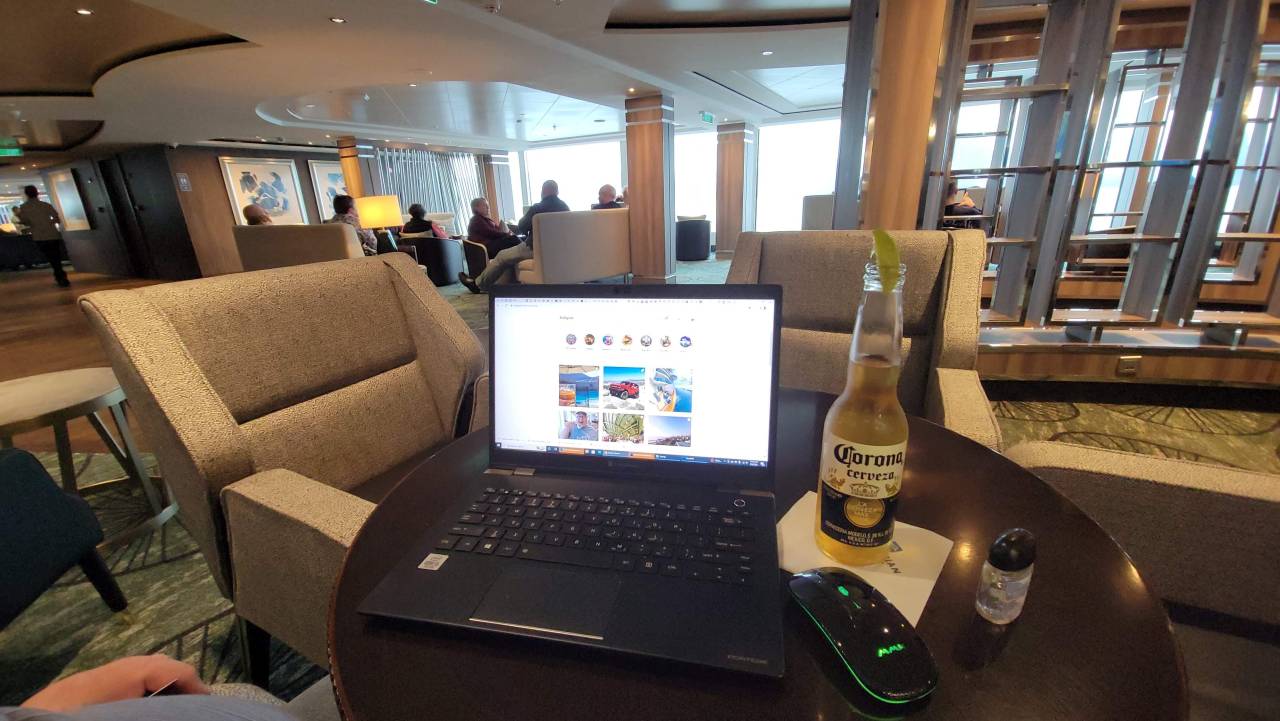Twenty years ago, remote work meant hunting for phone jacks in hotel rooms and praying your dial-up connection would hold through client calls. As a travel blogger who's been working from the road since before WiFi was standard, I've watched technology transform from burden to blessing. These aren't theoretical productivity hacks - they're survival strategies refined over thousands of miles and hundreds of locations, from rest stops in Nevada to beachfront hotels in Florida.
What Do You Call Your "Guys Trips"?
- Transform dead highway time into productive work sessions with proper mobile setup
- Maintain professional credibility while working from anywhere - even your truck
- Save thousands annually by combining work travel with personal adventures
- Build location independence that creates opportunities for spontaneous escapes
- Master connectivity strategies that work from Manhattan to Montana backroads
- 10 Things We've Learned About Remote Work
- Your Car Becomes Your Second Office
- Regional Connectivity Varies More Than You Think
- Hotel Business Centers Are Dead - Long Live the Lobby
- The Two-Device Rule Saves Everything
- Morning Calls from Rest Stops Work Better Than You'd Expect
- Security Matters More on the Road
- Time Zone Juggling Becomes Second Nature
- Battery Anxiety Is Real - Power Banks Are Life
- Noise-Canceling Headphones Pay for Themselves Weekly
- The 3-Hour Rule Changes Everything
- The Road Office Advantage
10 Things We've Learned About Remote Work
Two decades of mobile work teaches harsh lessons about what actually matters versus what productivity gurus claim matters.
Your Car Becomes Your Second Office
The evolution from paper maps spread across passenger seats to today's mobile command centers happened gradually. Power inverters replaced cigarette lighter adapters, and center consoles became cable management systems. The smartest investment remains a quality laptop mount that positions screens at eye level - your neck will thank you after hour three.
Regional Connectivity Varies More Than You Think
Infrastructure development across America follows industry patterns I've watched evolve for twenty years. Just as businesses seek specialized regional IT support - energy companies searching for "IT services San Antonio" due to the city's oil and gas expertise, while finance firms turn to New York - connectivity quality reflects local priorities. Mountain states prioritize different infrastructure than tech corridors. Understanding regional strengths helps you plan work sessions around geography, not hope.
Hotel Business Centers Are Dead - Long Live the Lobby
Remember fighting for the one desktop computer in cramped business centers? Those graveyards of productivity have transformed into vibrant lobby workspaces with reliable WiFi and actual comfort. Modern hotel lobbies offer better lighting, coffee access, and the white noise of activity that somehow aids focus better than sterile silence ever did.
The Two-Device Rule Saves Everything
Started with laptop plus flip phone for backup dial-up. Today it means smartphone hotspot plus dedicated mobile router. Redundancy isn't paranoia when deadlines don't care about dead zones. The monthly cost of a second data plan pays for itself the first time primary connectivity fails during crucial work.
Morning Calls from Rest Stops Work Better Than You'd Expect
Discovered this accidentally in 2008 during a snowstorm outside Denver, Colorado. Rest stops at 6 AM offer professional quiet before families arrive. Truck stops provide surprisingly solid bandwidth as drivers stream Netflix during mandatory breaks. These unconventional offices often beat fighting hotel room acoustics.
Security Matters More on the Road
VPN usage wasn't optional in 2005 and remains critical now. Physical security evolved from cable locks to encrypted drives after learning expensive lessons about vehicle break-ins. Business-grade password managers became essential after the third time changing every account password from a McDonald's parking lot. Keep a roadside emergency kit (communication device and a charge included) for both safety and backup connectivity.
Time Zone Juggling Becomes Second Nature
Pre-smartphone days meant mental math and missed calls. Now calendar apps handle the heavy lifting, but the real skill involves managing energy levels across time changes. Schedule critical work during your peak hours regardless of local time. Clients respect consistency more than accommodation.
Battery Anxiety Is Real - Power Banks Are Life
Carrying spare laptop batteries in 2004 taught hard lessons about power management. Modern 26,800mAh banks can charge everything twice, fitting easily in door pockets. The peace of mind knowing you have eight hours of emergency power transforms how you choose work locations.
Noise-Canceling Headphones Pay for Themselves Weekly
Early adoption of Bose QC2s in 2005 changed everything. Today's models create instant offices anywhere. The investment seems steep until you successfully lead a board call from a busy truck stop or focus through hotel construction noise.
The 3-Hour Rule Changes Everything
Thousands of driving days revealed this natural rhythm. Three hours of driving, one hour of focused work, repeat. This pattern maintains alertness while crushing task lists. Oklahoma guys trips taught me that even vacation drives become productive with proper chunking.
The Road Office Advantage
Twenty years taught one unexpected truth - forced efficiency from limited resources creates better work habits than unlimited office resources ever could. The constraint of battery life, bandwidth limitations, and uncomfortable positions makes you ruthlessly prioritize what matters. Advanced tip: seasonal weather patterns predict connectivity reliability better than coverage maps. Spring storms in the Midwest mean pre-downloading everything, while Arizona summers require heat management for equipment survival. The road strips away busy work and reveals what actually drives results.
